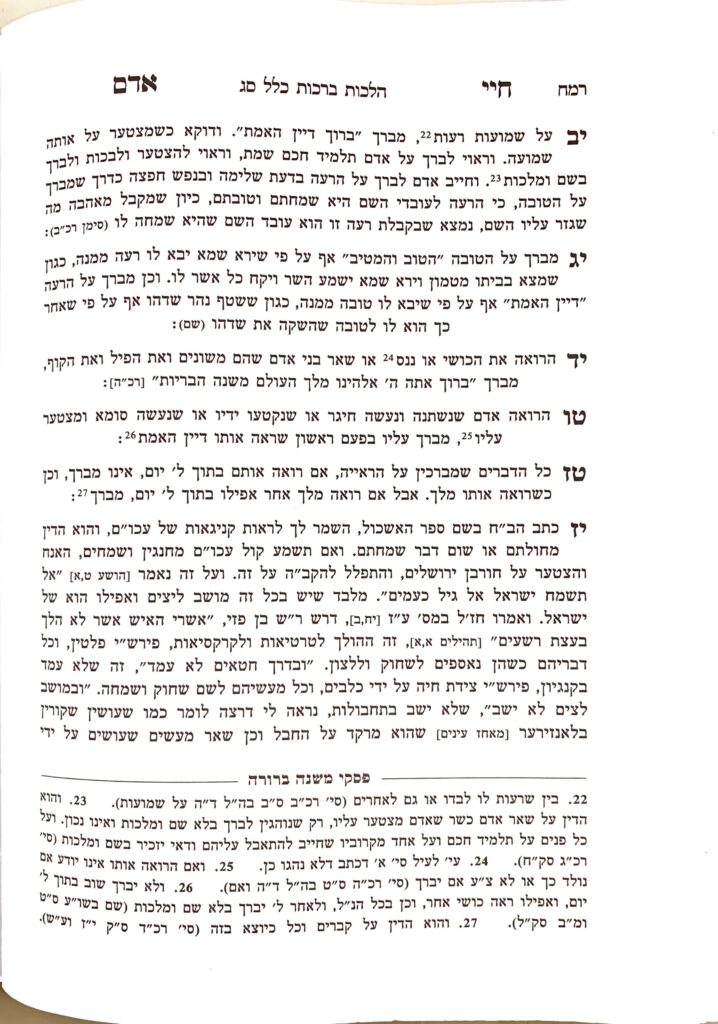We are beginning siman 12. When a person receives bad news, they recite the bracha of dayan haemes. The Mishnah Berurah adds the person delivering the news must be trustworthy and certain of the news, and, in the Shaar Hatziyun, suggests that the person may need to be muchzak b’kashrus (established and verified as halachically trustworthy).
The Chayei Adam clarifies that one must be bothered by the news in order to recite the bracha. Thus, if one hears bad news about a non-relative to whom they feel close, such as a rebbe, they would make the bracha as well. (The Chayei Adam does not discuss relatives in this siman, only non-relatives.)
If the niftar is of the caliber that one should feel bothered, but they do not, a person should bring themselves to the emotional place where they feel bothered and then make the bracha with Hashem’s name. However, our minhag is to say the bracha without Hashem’s name, unless the niftar is one’s primary rebbe.
In the next part of the siman, the Chayei Adam discusses the attitude one should have when making the bracha, and compares it to the attitude one should have when making a bracha on good news (which will be discussed in the next siman).
The Chayei Adam writes that one should recite the bracha with the same level of awareness and praise to Hashem as they would when they recite the bracha of hatov vehametiv. To be clear, the Chazal do not expect a person to be in a state of simcha when reciting this bracha. However, a person is able to achieve the same level of clarity and perspective of understanding that Hashem runs the world and has done something beneficial as they achieve when reciting the bracha of hatov vehametiv. When one looks at punishments as a positive notion–namely, that it is part of one’s growth in avodas hashem to accept the bad news with ahavah–they will use the challenge as an opportunity for growth.
Practically, the minhag is to recite the bracha without Hashem’s name in all instances other than a person’s primary rebbe. Although the Mishnah Berurah clearly holds that one should recite the bracha with Hashem’s name in any instance in which they feel bothered, it seems that we refrain from doing so due to our reserved nature and lack of true feeling for the loss of a talmid chacham.
Summary
One recites the bracha of dayan haemes upon hearing bad news from a trustworthy source about their primary rebbe. If one hears bad news about other people, they recite the bracha without Hashem’s name.



